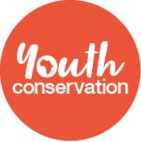Environmental education project in schools
EDUCATING TOMORROW’S ECO-CITIZENS BY ACTIVIST PHILEMON DJOI
THE NEED FOR ENVIRONMENTAL EDUCATION FOR CHILDREN IN BENIN
I’m Philémon DJOI from Benin Republic, a young climate change activist who leads a team of young people advocating to improve children’s knowledge of global issues.
Benin with an area covering 114,763 km², like many countries, is experiencing a decline in biodiversity due to various factors such as habitat loss, pollution, climate change, and unsustainable land use practices. This decline in biodiversity threatens ecosystems, wildlife, and the well-being of communities dependent on natural resources. And when we talk about community, we sometimes forget that children are included and are more innocent and likely to be affected during their lives by their parents’ negative environmental pressures.
However, in this age of the 21st century, when information is a necessary weapon, children, who are the future, are still the least informed about the global problems – rain scarcity, rising sea levels, rising temperatures, loss of biodiversity, etc. – that we are currently experiencing.
Aware that environmental education is not a reality in schools in the Republic of Benin, hands-on activities, community involvement and concrete projects can reinforce learning and inspire environmental stewardship in children, fostering a generation of responsible environmentalists, we decided to run an environmental education project with children in schools.
Environmental education projects: objectives and results
The objectives of the project were to:
- Raise awareness among students about the global issues such as Climate change, Environmental Pollution and biodiversity loss,
- Provide students with knowledge and documents about Climate change, Environmental Pollution and biodiversity loss,
- Empower students to take action to address global issues through practical initiatives such as tree planting, habitat restoration and waste reduction.
The methods we have used are based on and inspired by the 6 modules of Youth Conservation’s Animation Guide and Nature Activity Guide, and start from discovering the causes and consequences of global issues, understanding the consequences of global issues, and taking action.
As a result, we reached eleven (11) schools with approximately 700 students aged 05 to 14; we planted 220 plants with our own funding and had a beach clean-up day in 08 months (September 2023 to March 2024).
The project aligns closely with a variety of policy frameworks at local, national, regional, and international levels. Locally, it aligns with Benin’s national environmental policy objectives related to raising awareness, promoting environmental education, and fostering community engagement in conservation efforts.
- It contributes to environmental action plans and education policies of Benin in the government PTA 2024-2025 that focus on addressing climate change, biodiversity conservation, and pollution control and promoting experiential learning, and empowering students as agents of change.
- Regionally, the project aligns with agreements such as the Abidjan Convention (on marine pollution), the Ouagadougou Declaration (on water resources management), and the Economic Community of West African States (ECOWAS) protocols on environmental protection.
- Internationally, it directly supports UN Sustainable Development Goals related to Goal 4 (Quality Education), Goal 13 (Climate Action), Goal 14 (Life Below Water), and Goal 15 (Life on Land). The project aligns with UNESCO’s ESD framework, promoting education that empowers learners to take informed decisions and responsible actions for environmental integrity.
Would you like to join the team or support the project? Contact us! philemondjoi9@gmail.com
or LinkedIn

